Brian Lehrer: It's The Brian Lehrer Show on WNYC. Good morning again, everyone. As we say goodbye to 2023, let's take a look back at some of the words that defined the past year. Each year, multiple dictionaries choose a word of the year. Sometimes these words make us laugh, other times they remind us of particularly painful moments we've collectively experienced, and a fair amount of the time they have us scratching our heads. This year's words are no exception.
Our English language dictionaries have come up with words that will surely take us across a range of emotions. Spoiler alert, one of them that you may not have already heard is cozzie livs. We will define and explain, and maybe we'll have you saying it next time you go shopping, cozzie livs. Stay tuned for details. Joining us now to go over the various words of the year and the cultural events that paved their way is Ben Zimmer, linguist language columnist at the Wall Street Journal and Chair of the New Words Committee of the American Dialect Society. Ben, always great to have you on the show. Welcome back to WNYC.
Ben Zimmer: To be back.
Brian Lehrer: Listeners, you are a part of this. What is your word of the year? 212-433-WNYC. This can come from any category of word of the year. If there's just a word you've been hearing a lot more this year for whatever reason, maybe it's been in the news, maybe it's from your kids because sometimes generational trends really drive language changes. Maybe it's a word that defines something specific to your life or a society-wide observation that you've made.
What's a word of 2023 in your life or in the world as you perceive it? 212-433-WNYC, 212-433-9692, call or text. Is there an official word of the year this year from any of the deciding sources, these dictionaries, we'll go down that list, that you particularly agree with? Maybe there's a previous word of the year, a word of a previous year that you think has remained relevant in '23.
Call or text us with a word of the year according to you, 212-433-WNYC, 212-433-9692, as we talk to Ben Zimmer from the Wall Street Journal and the New Words Committee of the American Dialect Society. Ben, let's go first up to the Cambridge Dictionary and dictionary.com, which have declared the word of the year to be hallucinate. I thought that was the word of the year of like 1967. Why hallucinate?
Ben Zimmer: Yes, there were different hallucinations going on back in the 1960s. Hallucination or the verb hallucinate has had this meaning that we've known for a long time about when our own human perceptions become rather elusory. What we've seen rise in usage of is this word that's been around for a while now being applied to artificial intelligence. Anyone who's fooled around with ChatGPT from OpenAI, barred from Google, or the various other AI interfaces that have become so popular just in the past year or so, will be all too familiar with hallucinations, where you just get stuff that is completely made up.
This synthetic text that's generated by these various chatbots powered by large language models can just generate things that are flat-out wrong. You can ask it to tell me about Brian Lehrer, and it'll just make up details that have nothing to do with the real-life Brian Lehrer. That has been this problem obviously that the companies like OpenAI have been grappling with.
If they really want their AI ventures to succeed, they're going to have to deal with this hallucination problem that is really plaguing just the use of this. In colleges, professors are finding their students using AI by citing sources that do not exist, for instance. Sometimes the hallucinations can just be easily found out just by Googling. Is this actually a real thing? You find out, no, ChatGPT just made that up.
Brian Lehrer: For all the conversation we were having in the last segment and that society has been having, in 2023, in general, of how much AI is going to destroy jobs for human beings, you're telling us that AI often fails. There's a lot of AI fail moments out there, and the word hallucinate is being applied to those.
Ben Zimmer: Yes, absolutely. It points to, again, the limitations that these AI companies currently have with these large language models and being able to generate text that is actually tethered to reality. Sometimes these AI researchers talk about untethered text for this synthetic text that just goes wild and does not have much basis in reality. There are actually AI researchers who don't like that term hallucination or hallucinate because it's just another way that we anthropomorphize artificial intelligence so that we treat it as if it's a human brain having hallucinations.
There are some critics who say, let's stay away from terms like that which lead people to think, oh, this is just like human intelligence when it really is not.
Brian Lehrer: Interesting. On a similar note, the Collins English Language Dictionary, published by Harper Collins in Scotland, I believe, came up with AI as their word of the year. Has the spread of artificial intelligence been that consequential in 2023 to warrant so much representation among the words of the year?
Ben Zimmer: Absolutely. You were just talking about this in your previous segment. I think it's something that has really pervaded so much of just the common discourse in 2023 and beyond about what does this all mean. What is the field of AI as represented by ChatGPT and these other new efforts? What does that pose in terms of promises and challenges? That really dominated the discourse. The words of the year, unsurprisingly, reflect that.
Artificial intelligence has been around, as a term, since the 1950s, but just if you're a dictionary publisher, you would probably be keeping track of all of the lookups that people are making to your online dictionary. Certainly, in 2023, lots of people were looking up AI just to try to understand, well, what does it mean? What does artificial intelligence actually mean in order to understand the issue?
Brian Lehrer: I guess we learned that a word of the year can actually be a two-word phrase, artificial intelligence, or the initials for it. Oppositely, Merriam-Webster chose authentic to be the word of the year, which I think provides an interesting contrast to both hallucinate and AI. What do you make of this choice? Are people using authentic, which, of course, is not a new word in any way, in new ways in 2023?
Ben Zimmer: Yes, that was an interesting choice because I think Merriam-Webster saw that people were reaching out again, like looking it up in the online dictionary to try to understand what is authentic. People have lots of reasons for looking up words in the dictionary. Authentic is a word that we all know, but perhaps there were various stories and conversations that people were engaging in, in 2023 where they were really, again, grappling with issues of authenticity. Again, it has to do with AI, but it also has to do with celebrity culture.
Merriam-Webster pointed to various celebrities like Taylor Swift who have tapped into the idea of the authentic voice or the authentic self. I think that a lot of the tech conversations too, not just artificial intelligence, but deep fake videos and all sorts of things that came up during the writers and actors strike, for instance, about being able to control your own image and how it's used. Then authenticity, just also in terms of various people like Elon Musk making headlines about what it means to be authentic on social media. That's a word that pervaded lots of different stories in 2023.
Brian Lehrer: Here's a listener comment on the word hallucinate being chosen by one of the dictionaries. Listener writes, "Hallucination in this sense is just propaganda or gaslighting. Those are not our sensory misperceptions. They are errors." That's what you were saying. That's why some people object to the use of the word hallucinate with respect to AI because it anthropomorphizes, makes the machines sound more like people when really these are just errors, maybe is a better word, as the listener writes. Now, interestingly, we have one word breaking out as the most cited so far by the number of people calling in and texting so far. I'm going to let Brett in Brooklyn represent first. Brett, you're on WNYC. Hello.
Brett: Hi. Thanks for taking my call. My pick for word of the year might be weaponization because it feels like everything, whether it's good or bad, is being weaponized, as if we're living in a giant street site where any object or idea can be used against anyone else or narratives can be changed about a person just by twisting the facts around for negative consequences. Even food aid has been weaponized, some say. All the good things that are humanitarian have also been called weaponized. That's my word of the year.
Brian Lehrer: That's your word of the year. Brett, thank you. We have a listener on text message who doesn't like that trend. Wish they went a little more into it, but all they wrote was, "One word I wish I never have to hear again is weaponize." Michael in New Rochelle is on that word too. Michael, hi. Do you have anything to add to what Brett was just saying?
Michael: I would say that it primarily comes from the right, and I've seen it creeping into the left's vocabulary as well. I think the main purpose of it is everything Trump. Trump uses that to defend himself, and it's a hollow word similar to-- It really lacks precision. It almost means nothing, but it doesn't mean that all the Republicans I hear just about love to throw it around.
Brian Lehrer: Interesting. Michael, thank you. Ben, have you spent any time considering the word weaponize?
Ben Zimmer: Yes, it's interesting. That's one that pops up from time to time as a kind of buzzword that people notice is getting used. I wrote about it in a Wall Street Journal column back in 2018 back when it seemed to be picking up usage then. The caller mentioned the Trump factor. Sure, we get to hear all of these things about weaponizing the Justice Department or weaponizing the FBI.
It becomes this kind of buzzword on the right, perhaps. It's certainly a very flexible word in terms of it seems like anything can be weaponized these days, treated as a weapon. Regardless of your political point of view, that word can tend to get overused, let's say, but that's often what happens with buzzwords that are in the news. People latch onto them, and that's one that perhaps suffered from overuse in the past year or so.
Brian Lehrer: Here are a few more coming in via text message. Listener writes, my word of the year is they. It gained power and momentum and earned broader acceptance. Their word of the year is they. Someone else writes unhinged, a term used to discredit a person as wildly untethered to reality. It turns up in daily headlines, social posts, and more, unhinged.
Let's see. I'm going to look further into this and see if the person likes it. It signals a growing sense that the world is going crazy. They're hearing the word unhinged more. Someone else, "I just heard this morning on the economic news the word merchification. What happened to merchandising?" Have you heard merchification yet? I have not.
Ben Zimmer: No, that's a new one on me. Those other ones were definitely more familiar. In fact, this suggestion of they is an interesting one because that's one that the American Dialect Society selected as word of the year for 2015. I believe Merriam-Webster ended up doing it a few years later really to point to the ways that singular they, they being used as a singular third-person pronoun, has been on the rise as a way to get beyond the gender binary of he and she.
In fact, the American Dialect Society did selections for word of the decade for the teens, and singular they was selected as the word of the past decade as well, just to show that this very old word in the language, and in fact they has been used as a singular pronoun for many centuries, but there's new attention being put on it.
Style guides like the Associated Press and New York Times now say, yes, singular they is fine to use. In part, it's being driven by this reevaluation just of that gender binary and seeking to transcend that through a pronoun.
Brian Lehrer: Eli in Paris has a word of the year. Hi, Eli. You're on WNYC. Hello from New York.
Eli: Hi. Thank you. I've noticed that people are using more and more words that usually refer to physical space to describe feelings such as, I'm in a safe space, I'm on a journey, I'm in a place of happiness, that sort of thing. That's a trend that I've noticed.
Brian Lehrer: Thank you very much. Space, and it's not new to use space in a psychological or an interpersonal sense, but do you see it being used more indifferently, Ben?
Ben Zimmer: That's an interesting kind of metaphor or metaphorical grounding that people may be drawn to and, as you say, certainly not a new phenomenon, but the more that people talk about, oh, this is my happy place, or talking about safe spaces where it's really not the physical space that you're talking about so much as mapping the physical space onto a mental space, which can be a useful metaphor for thinking about our own emotions and points of view.
Brian Lehrer: By the way, Eli, if you're still there, do they do this sort of thing in France, or is this a US phenomenon that we have dictionaries in the English language coming out with words of the year? Are there French words of the year? I don't know what you do in France, or if you're there long term, but if you speak French, are they having these kinds of segments over there?
Eli: Yes, they are. In fact, we have the Académie Française, which is in charge of publishing the official dictionary and deciding what words can be admitted into the French language. This is a big topic over here.
Brian Lehrer: Do you have one by any chance that you can recall?
Eli: Ooh, that's a tough one. Not off the top of my head, but a big debate now is getting rid of the masculine and the feminine in the name of gender equality.
Brian Lehrer: Right. Thank you. Because every word in French, Ben, I'm going to assume you have this much knowledge, is, or all the nouns I guess, are either masculine or feminine. There's le, the masculine for the, and la, the feminine for the. I don't have any examples off the top of my head, but the nouns at least divide up into feminine and masculine when they have nothing to do with gender.
The word for table and the word for chair would be one or the other, and other things that are not gendered in any sense. Are you familiar with French enough to have a thought on their trying to remove genderization from the French language?
Ben Zimmer: I've seen references to that, and again, coming back to pronouns like we were talking about with singular they, romance languages which may not have official gender-neutral or non-binary pronouns, in such a case then sometimes people will make up a new pronoun, make a neo pronoun in order to have a pronoun that does not refer to gender. I know that in French that there was a pronoun spelled I-E-L, iel, which has been used to refer to non-binary people.
Brian Lehrer: Which would be between-- I know a little bit of French. Il, I-L, which is the masculine, and elle, people know Elle Magazine, that's from a French feminine pronoun. They're trying to come up with ones that are non-gendered there. Have you done any cross-cultural, meaning comparing English with different languages, comparisons regarding what kinds of words break out as words of the year in different languages?
Ben Zimmer: I haven't really looked at that cross-culturally. There are various countries that do their own words of the year. It is interesting to see, whether it's German or Japanese or what have you, what other countries pick. Sometimes it's dictionary publishers in those countries that are doing it much like we see in English. Very often it's grounded in their own cultural discussions. Sometimes we see a kind of English language cultural imperialism, where it's an English lone word that's coming in that people end up choosing, or at least they might translate an English word into their own language in a certain way. That's often something we see.
Brian Lehrer: Joseph in Manhattan wants to comment on one of the official dictionary words of the year. Joseph, you're on WNYC. Hi.
Joseph: Hi, Brian. Thanks so much. I find it interesting and wanted to hear your thoughts about the word rizz. Especially I'd love to hear your thoughts about how you're seeing with social media the ways in which these colloquial terms, these slang terms begin to circulate. If I recall correctly, rizz is something that really became popular online in 2022 with a particular social influencer, and then circulated more widely until it became the Oxford Word of the Year in 2023. I'd love to hear your thoughts about rizz and how it shows the nature of language changing in the age of social media.
Brian Lehrer: Joseph, thank you. For people who don't know, the Oxford Dictionary did put forth rizz, R-I-Z-Z, as their word of the year. Is the context what he says as far as you're concerned, Ben?
Ben Zimmer: Yes, absolutely. It's a great example, as the caller says, of how social media is playing this outsized role now in the generation and circulation of new words and phrases. We did see rizz first bubble up in 2022. There was a particular Twitch streamer named Kai Cenat who started using rizz to refer to this, what you might say is romantic appeal or charm. It's often taken to be a shortening of charisma, a play on that, taking that second syllable of charisma and turning that into rizz. Although, interestingly, the original YouTuber/streamer, Kai Cenat, says that's not where it comes from. He just made it up on the spot, and people just assumed that it came from charisma.
Rizz was actually in 2022 considered by the American Dialect Society, the group that I'm a part of, as word of the year. It didn't win, but I wouldn't be surprised if it gets some new attention just as it did from Oxford this year because, in 2023, that word just really skyrocketed in usage and found all sorts of new ways to be used including being used as a verb. To rizz up, to rizz someone up is to charm someone, to seduce them, to flirt with them. We got that kind of usage. Celebrities, like Tom Holland, were using it.
Oxford chose that in part just to show they're able to actually measure, they're able to quantify this new word coming to the language, and just by looking at a corpus, a selection of texts, from this past year, just seeing that this is a word that comes out of nowhere and just suddenly gets used all over the place, and now it's in dictionaries.
Brian Lehrer: Finally, as promised in the intro, a word of the year that a lot of our American listeners probably have not heard identified as such this year. It comes from the Australian dictionary, macquarie, if I'm saying that right. It's M-A-C-Q-U-A-R-I-E.
Ben Zimmer: The word is?
Brian: Macquarie, is that how you say?
Ben Zimmer: Yes.
Brian Lehrer: Macquarie, and it's really two words. It's cozzie livs, C-O-Z-Z-I-E-L-I-V-S, cozzie livs. While it hasn't gotten the same amount of attention here as the other words, I'm sure a lot of our listeners will be able to relate once they know the definition. Can you define cozzie livs for us non-Aussie folks?
Ben Zimmer: Well, Australians love shortening words, and cozzie livs is a fun way to shorten cost of living. If you're talking about cost of living increases, just call it cozzie livs. That's a fun way to say it. That shows the way that Australians have their own particular spin on language that might be different from here in the US. If I could also, just before we go, put in a plug for the American Dialect Society, if you would like to make your nomination for Word of the Year, please go to americandialect.org, and right at the top you'll see you can click to make your nominations. We'll be selecting our choice next week at our annual meeting. We would love to hear from all the listeners about what their choices are.
Brian Lehrer: Okay. May your cozzie livs be manageable in 2024. Ben Zimmer, linguist, language columnist at the Wall Street Journal, and chair of the New Words Committee of the American Dialect Society. Ben, this is great. Thanks so much. Happy New Year.
Ben Zimmer: Thank you. Happy New Year to you.
Copyright © 2023 New York Public Radio. All rights reserved. Visit our website terms of use at www.wnyc.org for further information.



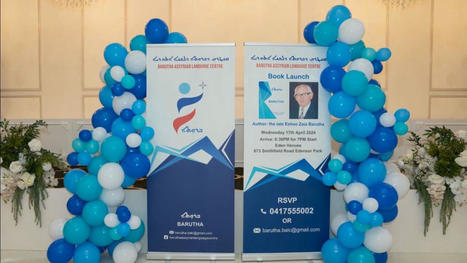


 Your new post is loading...
Your new post is loading...



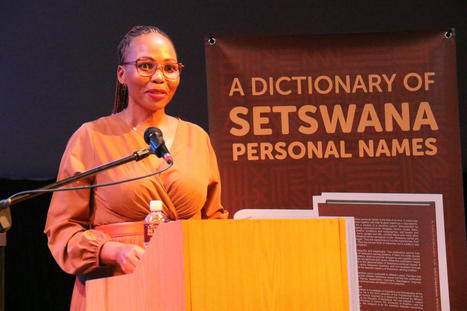
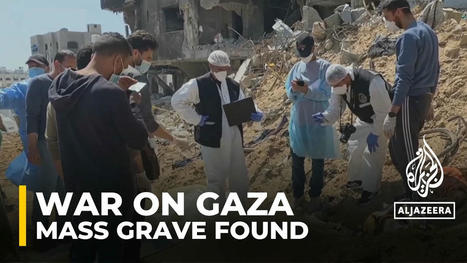
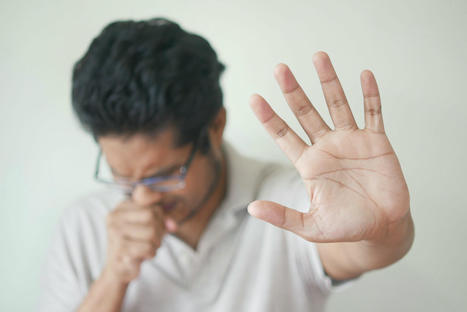
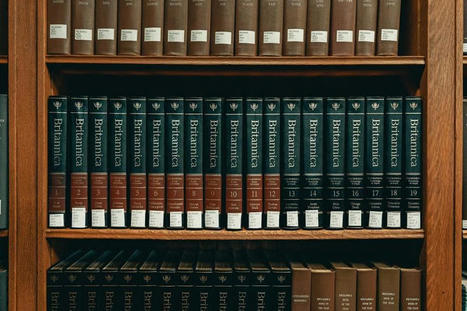
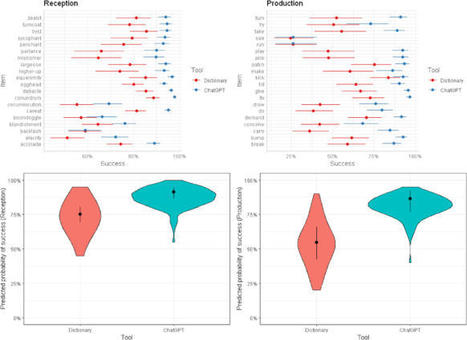
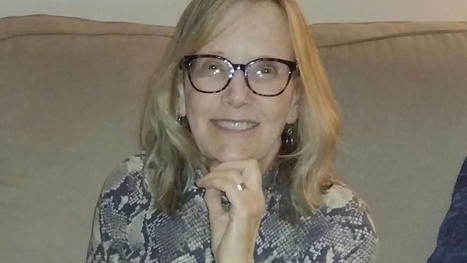
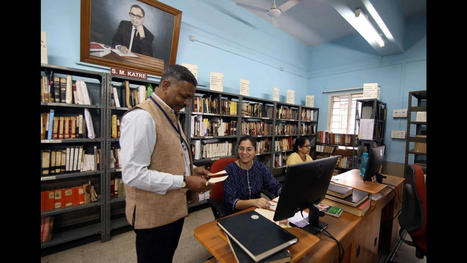
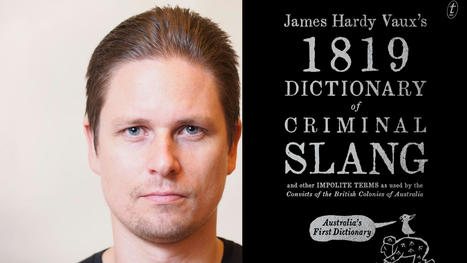
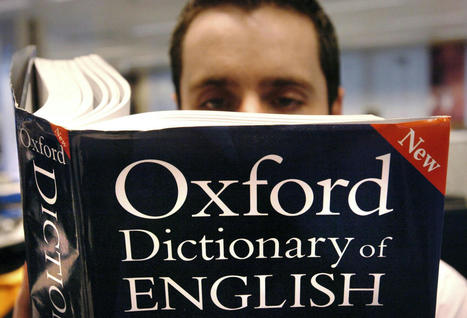

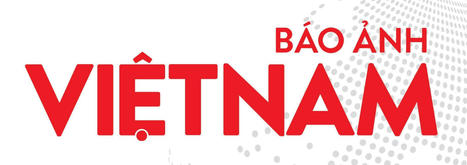
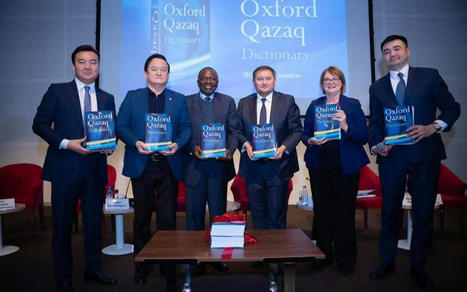
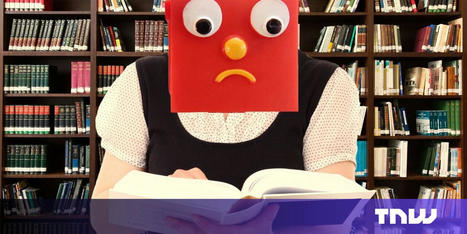








"The launch of the dictionary book of Esho Barutha
The Barutha English-Syriac Dictionary stands as a testament to the unwavering dedication of Ishu Barutha, who initiated its creation in the 1970s to address the linguistic needs of the Assyrian community across the globe
"The launch of the dictionary book of Esho Barutha
The Barutha English-Syriac Dictionary stands as a testament to the unwavering dedication of Ishu Barutha, who initiated its creation in the 1970s to address the linguistic needs of the Assyrian community across the globe